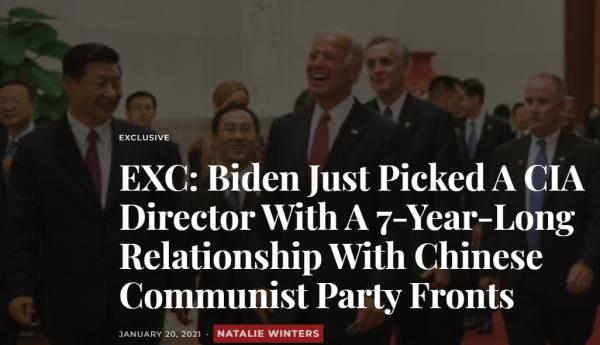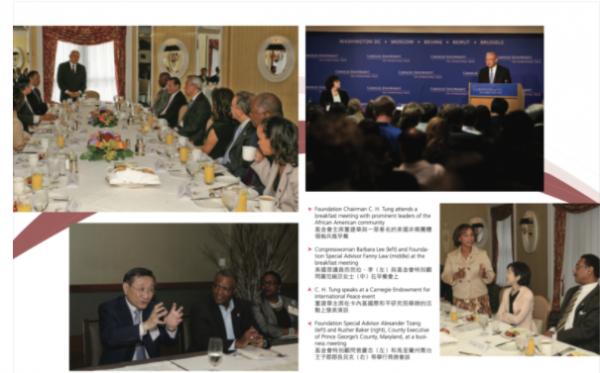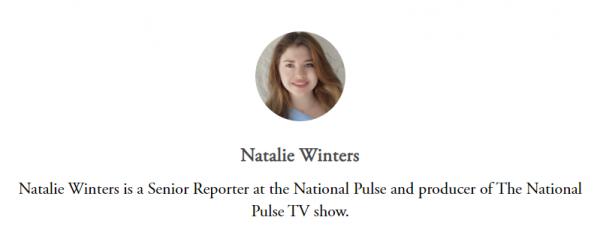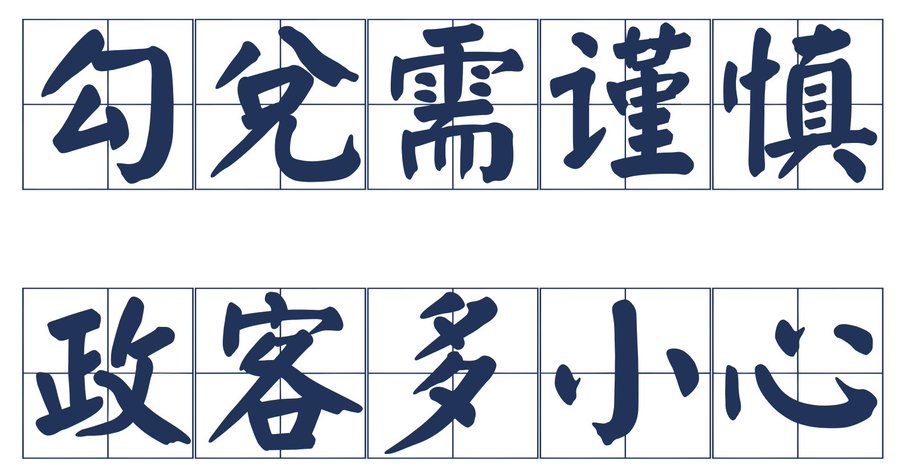| 拜登剛剛選中了與CCP有7年關係的CIA局長 |
| 送交者: Pascal 2021年01月21日23:06:10 於 [五 味 齋] 發送悄悄話 |
|
Bill Burns – Joe Biden’s pick to lead the Central Intelligence Agency – serves as the President of the Carnegie Endowment for International Peace which has over a decade-long relationship with the China-United States Exchange Foundation and other Chinese Communist Party-linked groups.比爾·伯恩斯(Bill Burns)——喬·拜登挑選的領導中央情報局的人選,任卡內基國際和平基金會主席,該基金會與中美交流基金會和其他與中共有聯繫的團體有超過十年的關係。 伯恩斯自2014年起擔任該智庫的主席,監督其與中美交流基金會(CUSEF)的合作,該基金會至少可以追溯到2009年。 CUSEF,是中共統一戰線工作的一部分,該工作旨在 “合作並消除潛在的反對派來源”,並鼓勵外國活動家 “採取支持北京偏愛的政策立場”, CUSEF曾贊助中共官員前往卡內基國際和平基金會演講。
2009年,該智庫接待了前上海市市長、中共政協副主席,並在CUSEF支付的旅行中進行了 “主題演講”。 同樣,兩年後,根據CUSEF的宣傳手冊,CUSEF的創始人董建華,作為中共統一戰線的 “最高級監督機構”,在卡內基國際和平基金會的活動中發表演講。 更重要的是,《南華早報》將卡內基國際和平基金會描述為CUSEF的 “資金接受者”,並經常與他們一起開展尋求促進中美合作的項目。 2012年,CUSEF與該智庫合作開展了 “美中安全認知項目”,該項目分析了 “政府、企業、學術界、軍方和媒體五個不同類別的公眾和精英對廣泛的國家安全問題的看法,從美國和中共在全球和亞洲的權力性質,到對彼此的國家民族特色所持有的形象進行了探討。” 同樣是與中共戰略文化促進會(CSCPA)合作——其領導人,前中共海軍羅援軍官主張中共軍隊要 “強大”——這份62頁的報告向美中兩國決策者發出了一系列 “建議”,包括 “強調合作而非競爭”,以及 “防止台灣問題破壞更廣泛的合作”。 卡內基基金會的一眾領導人——包括副總裁帕爾(Douglas Paal)——也為CUSEF的季刊《中美聚焦》撰稿。 自2014年以來,在柏恩的領導下,包括高級副研究員黃育康、駐校學者馬特-費琛和駐校學者王濤在內的個人,與中共官員和解放軍領導人一起為該雜誌撰寫了至少6篇文章。 卡內基基金會與中共還有一個聯繫:設在北京的卡內基——清華中心。 該中心設在清華大學,由七位在中共政府資助的大學工作的人擔任指導學者。史志欽、孫學峰、趙可金、唐曉陽、陳琪、張利華、張傳傑。 兩位高級研究員與中共的關係更為明確,如 “曾在北京市人民政府外事辦公室工作 ”的趙通和 “中共商務部諮詢委員會委員 ”閻學通。 前國防情報局高級情報官員、國務院官員尼古拉斯·埃夫蒂米迪斯稱:“中共領導人習近平的母校清華大學也與中共 國家科技和工業管理部門在討論[他們]能為國家安全做些什麼時,有着 ‘明顯的聯繫’。” 該學校甚至針對美國政府發起了網絡攻擊,並與CNN和《紐約時報》等西方機構合作開展 “馬克思主義新聞 ”項目。 該中心旨在促進美中合作,曾舉辦過中共官員和美國立法者如保羅·瑞安(Paul Ryan)、趙小蘭(Elaine Chao)和約翰·克里(John Kerry.)等出席的會議。 原文作者:娜塔麗·溫特斯(Natalie Winters / 《國家脈動》) 發布時間:2021年1月20日 原文鏈接:https://thenationalpulse.com/exclusive/biden-cia-director-ccp/ Burns has served as President of the think tank since 2014, overseeing its involvement with the China-United States Exchange Foundation (CUSEF) which dates back to at least 2009. CUSEF – part of the Chinese Communist Party’s United Front effort that seeks to “co-opt and neutralize sources of potential opposition” and encourage foreign actors to “adopt positions supportive of Beijing’s preferred policies” – has sponsored trips for Chinese Communist Party officials to speak at the Carnegie Endowment for International Peace. In 2009, the think tank hosted former Shanghai Mayor and Vice Chairman of the Chinese Communist Party’s Political Consultative Conference for a“keynote speech” on a trip paid for by CUSEF. Similarly, two year later, CUSEF’s founder Tung Chee-hwa, who chairs the “highest-ranking entity overseeing” China’s United Front, spoke at a a Carnegie Endowment for International Peace event according to CUSEF promotional brochures. What’s more, the South China Morning Post describes the Carnegie Endowment for International Peace as a recipient of “money from” CUSEF and often works alongside them on projects seeking to boost U.S.-China collaboration. In 2012, CUSEF partnered with the think tank on the “US-China Security Perceptions Project” which analyzed the “views of the public and elites in five distinct categories – government, business, academia, the military, and the media – regarding a wide range of national security issues, from the nature of American and Chinese power, both globally and in Asia, to the images held of one another’s national character.” Also in partnership with the China Strategic Culture Promotion Association (CSCPA) – whose leader former Chinese Navy Luo Yuan officer argues for a “strong” Chinese military – the 62-page report issues a host of “recommendations for U.S. and Chinese policymakers including to “emphasize cooperation over competition” and to “prevent the Taiwan issue from derailing broader cooperation.” A host of Carnegie Endowment leaders – including Vice President Douglas Paal – have also contributed to CUSEF’s quarterly journal, China-US Focus. Since 2014, individuals under Burn’s leadership, including Senior Associate Yukon Huang, Resident Scholar Matt Ferchen, and Resident Scholar Wang Tao, have contributed at least six articles to the magazine alongside Chinese Communist Party officials and People’s Liberation Army leaders. The Carnegie Endowment retains yet another link to the Chinese Communist Party: its Beijing-based Carnegie-Tsinghua Center. Hosted at Tsinghua University, the institute features seven individuals who work at the Chinese government-funded university as its guiding scholars: Shi Zhiqin, Sun Xuefeng, Zhao Kejin, Tang Xiaoyang, Chen Qi, Zhang Lihua, and Zhang Chuanjie. Two senior fellows have even more explicit ties to the Chinese Communist Party such as Tong Zhao who “has worked for the Office of Foreign Affairs of the People’s Government of Beijing Municipality” and Yan Xuetong, a “member of the Consultation Committee of China’s Ministry of Commerce.” Tsinghua University, Chinese Communist Party leader Xi Jinping’s alma mater, also has a “clear connection” to the Chinese”state administration for technology and industry in discussions on what [they] can do to help the national security,” according to former Senior Intelligence Officer in the Defense Intelligence Agency and State Department Official Nicholas Eftimiades. The school has even launched cyberattacks against the U.S. government, and partners with Western institutions like CNN and the New York Times for its “Marxist journalism” program. The center, which seeks to boost U.S.-China collaboration, has hosted conferences attended by Chinese Communist Party officials and American lawmakers such as Paul Ryan, Elaine Chao, and John Kerry.
|
|
|
|
|
 |
 |
| 實用資訊 | |
|
|
|
|
| 一周點擊熱帖 | 更多>> |
|
|
|
| 一周回復熱帖 |
|
|
|
|
| 歷史上的今天:回復熱帖 |
| 2020: | 最簡單的傳染模型應該是這樣的: 海外1 | |
| 2020: | 外長王毅主持對台工作會議,這個信號不 | |
| 2019: | 俺為何相信進化論? | |
| 2019: | 一個快速積累功德資糧的方法,不信的跳 | |
| 2018: | 轉篇博文: | |
| 2018: | 馬思聰:我為什麼逃離中國(轉載) | |
| 2017: | 看來花錢買遊行不能讓中共專美,民主黨 | |
| 2017: | 隔壁那個華人與狗不能進的資本家,既反 | |
| 2016: | 中越戰爭真相:中國和蘇聯命運的關鍵轉 | |
| 2016: | 靠!吃拿人連愛鬼也要靠翻牆偷渡,嘿嘿 | |








